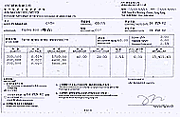Unauthorised trades
Allegations of unauthorized trades arise when investors dispute transactions on grounds that they have not placed the orders or they have not authorized the account executive or the third party to operate their account. Unfortunately, many of these allegations are not supported by clear and strong evidence. An account executive will assert that instructions or authorizations were given and the client will say they were not.
How is it possible for trades to be unauthorized?
There are several types of unauthorized trades. The most blatant type is where the account executive conducts his personal trades through the clients' accounts without the clients' knowledge. This could be part of a scheme to misappropriate the stocks or funds of the account holders. In other cases, trades are said to have been conducted in excess of authorization or solely for generating more commission income for the account executive.
On the other hand, there are cases where the account holder allow his accounts to be used by the account executive or a third party but when losses were incurred, and the party granted with the authorization fails to take responsibility for the losses, the account holder alleges unauthorized trades.
What are the common features in unauthorized trades cases?
- The account holder has not given discretionary authority to the account executive or a third party but a verbal agreement is alleged.
- The trades cause loss.
- The account holder is not aware of the trades as he has not reviewed the contract notes and the statements of account, or has not received these documents altogether.
- Even where the account holder has suspected unauthorized trades, the matter is not immediately brought to the attention of the management of the brokerage.
- Brokerages are required to keep telephone records of clients' instructions for at least six months, but the tapes may have already been recycled if the account holder only lodges a complaint to the brokerage after six months have lapsed. Hence, the relevant telephone recording may not be available to verify the trade placed by the account holder.
As a result, cases of unauthorized trades are often difficult to prove. The brokerage may not be able to form a view on the complaint lodged by its client even after an internal investigation has been conducted.
How could investors avoid such abuses?
If investors fail to look after their own interests, it will defeat a brokerage's internal control system and procedures, no matter how strong they are. Remember, if you have allowed the account executive or other third parties to book trades in your accounts, you might have to bear the legal consequence of these trades. To protect your own interests, you should:
- Provide a written authorization to the brokerage if you wish to authorize a third party to operate your account. State clearly the authority granted.
 Check with the brokerage to see if they offer discretionary services should you wish your account executive to act on his own initiative without seeking your instructions. In the authorization letter, state clearly the authority granted. Ensure that the account is designated as a "discretionary account" in the client agreement.
Check with the brokerage to see if they offer discretionary services should you wish your account executive to act on his own initiative without seeking your instructions. In the authorization letter, state clearly the authority granted. Ensure that the account is designated as a "discretionary account" in the client agreement.- Avoid placing orders through the account executive's mobile phone to ensure that there is an audit trail of all of your orders.
- Ensure that you receive promptly and directly from the brokerage your contract notes and statements of account. Check these documents. Make sure that all the transactions recorded in them were authorized by you. Verify account balances regularly with the settlement department of the brokerage to ensure their correctness.
- Do not agree to hold mail arrangements unless that is absolutely necessary. In any event, you must check the details of your account from time to time. The combination of a discretionary account and a hold mail arrangement could expose you to unnecessary risk if unscrupulous intermediaries conduct trades to your detriment.
- Make all payments to the brokerage directly. Never pass money or cheques to account executives.
- Write on the deposit slip your account number and name together with your signature before passing the slip to the brokerage if you have to deposit funds into the firm's account for settlement.
- Immediately contact the responsible officer or the settlement department of the brokerage rather than your account executive for explanation of any discrepancies or alteration in the contract notes or the statements of accounts. Write to the brokerage with details if needed. Note that brokerages are required to keep telephone records for only six months. If the matter cannot be resolved, file a complaint to the responsible officer, the compliance officer or the complaint officer of the firm.



